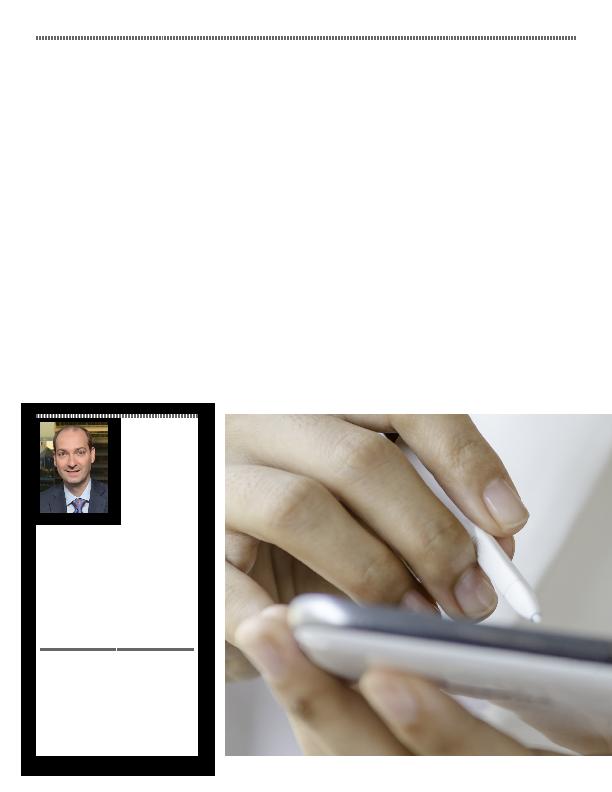
Electronic Wills and Recent Legislative Activity
pencil, [the testator's brother] suggested
that the will be written on his Samsung
Galaxy tablet," wrote an Ohio Probate
Court Judge to describe the scene in
which a man who lay in the hospital
dictated his testamentary wishes to his
brother, who then wrote them on the
tablet with a stylus.
witnesses to electronically sign their
names at the end of the will on the
tablet. Ironically, this electronic will was
printed on paper before its admission
to probate in 2013 under the harmless
error doctrine.
various messages created in electronic
formats have been admitted to probate
despite their non-traditional nature,
including an unsent text message found
on a decedent's iPhone who committed
suicide.
Australia, that have moved beyond
centuries-old will execution formalities
in favor of simpler tests, such as whether
the decedent intended or adopted the
communication as his or her last will.
Presently, the widely adopted
Uniform Electronic Transactions Act
signatures shall be given the same
legally binding effect as paper records
and manually signed signatures, with
one significant exception the creation
and execution of wills.
In the United States, a quiet
revolution is underway in state
legislatures to modernize the law of
wills to make room for electronically
created and stored wills and other
estate planning documents. Financially
motivated entrepreneurs and owners
of technology and software companies,
such as Willing (owned by Bequest,
Spieth Bell LLP, where he concentrates in
the core areas of estate planning and wealth
transfer, administration of trusts and estates,
fiduciary representation and dispute resolution,
charitable planning, business succession,
family foundations and taxation.
1375 East 9th Street, Suite 900
Cleveland, Ohio 44114
sssb-law.com